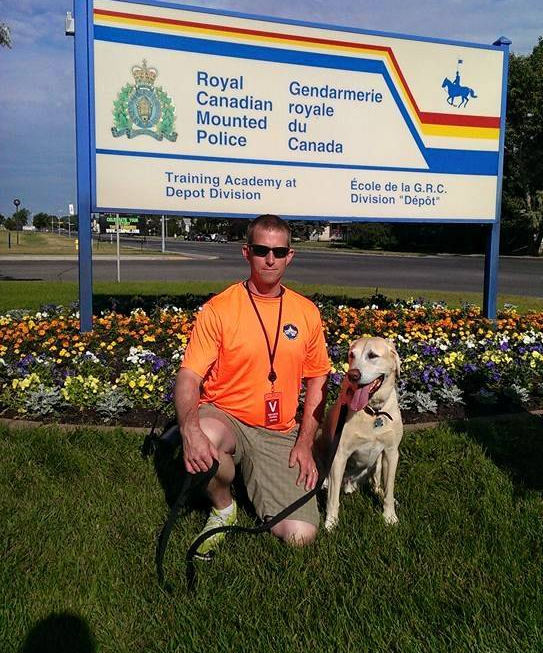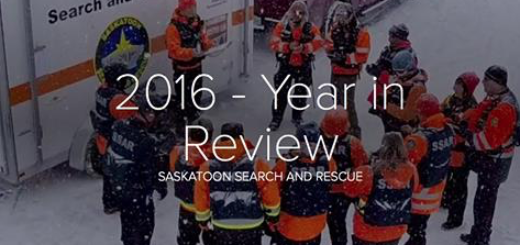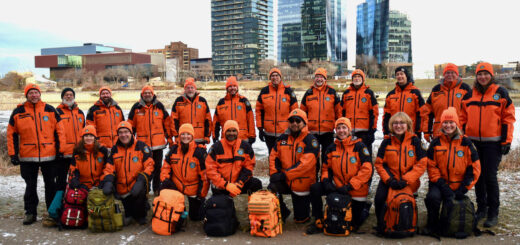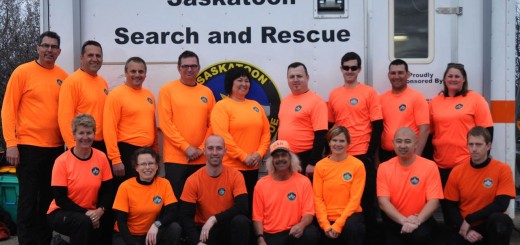Search Dog Basics
Written by Dale Johnstone
Last July, I had the pleasure of attending the three-day Search Dog Basics Seminar in Regina put on by Mary-Ann Warren of Precision Search Dog. Sgt. Pete Garvey of the RCMP and Lloyd Goodwill of Search and Rescue Regina (SARR) brought Mary-Ann in for the weekend to give us an introduction into the world of search dogs. As I’m sure many people know, we do not use civilian search dog teams in Saskatchewan. But there is a strong and growing desire to change that and this course was a big first step in that journey.
Mary-Ann has been a Search Dog Handler for 21 years and has been a Trainer/Training Director with the Search & Rescue Dog Association of Alberta for the past 16 years. She is extremely well qualified, very experienced and we were fortunate to have her come to Saskatchewan and spend a weekend with her.
I headed down on a very hot Friday afternoon and made my way through the Craven weekend traffic with my nine-year-old Labrador Retriever, Boomer. Boomer has been trained in obedience and as a hunting dog but this was our first venture into any kind of search, tracking or scent work.
We all met at Cabela’s in Regina and started off with some obedience drills. A rock solid foundation in obedience is critical with a working dog. They need to stop, stay and come without hesitation regardless of what’s going on around them or right in front of them. The drills gave us all a chance to meet, the dogs to get used to each other and for those of us who’d spent a few hours in a vehicle a chance to stretch our legs and shake the cobwebs out.
When our dog work portion was done, we were lucky to have PetCetera open their doors to us and give us an area where we could put our crates and keep our dogs while we headed off to the classroom portion. Patty, from SARR, was kind enough to babysit for a couple of hours and endure a little whining and a whole lot of puppy dog eyes trying to coax her into letting them out. Having a cool, secure area like that for our teammates while the handlers went off to the Cabela’s conference room for the theory portion of the evening was very much appreciated.
The weekend was typical of any introductory course; you felt like you were having a drink of water from a fire hose. There was so much information to absorb and so much to learn. We alternated between classroom work and field work with our dogs throughout the weekend, giving both handlers and dogs a break.
Saturday and Sunday found us at RCMP Depot. We were very lucky to have access to a cool, secure building for the dogs, lots of space and varying environments for dog work, and a conference room for our classroom sessions. Thanks again to the course organizers for looking after all of us on a very hot weekend. From the facilities to keep us all safe and happy, even with a tornado watch in effect on Sunday, to the fantastic food Saturday night at the BBQ at Pete and Gloria’s place. It takes a lot of work to put a weekend like that on so once again, thanks to all of you!
As a Search Manager, I was as much interested in learning about how and when dog teams are used as I was in the training aspect. We discussed and saw some of the capabilities of a well-trained dog team, but also learned about limitations and when they may not be the right tool for the job depending on temperature and other conditions. We learned and saw what a well-trained dog team can do in the right conditions. And we learned what it takes to get there.
According to Mary-Ann it takes at least two years of solid work for a handler and dog to become a certified team. Dog handlers have to have all the skills that our searchers and team leaders have on top of the dog work. If you look at the Search and Rescue Dog Association of Alberta website they have copies of their standards and operating procedures that detail their evaluation criteria and you can get an idea of what the requirements are for that organization.
Throughout the weekend we learned some very important lessons when it comes to search dogs:
- Working with and around search dogs;
- The different types of search dogs (air-scenting, tracking, live, human remains, evidence, water, urban SAR, disaster, etc.);
- There are a lot of different types of search dogs; some are cross-trained; all must be certified for each category;
- Scent theory;
- How to learn and document your dog’s body language (Boomer was very excited about a ham sandwich; not so much for human remains);
- Capabilities and limitations of dog teams; and
- The amount of work required to get there, but how rewarding it truly is.
We all left with a basic understanding of search dogs and the training involved. We also went home with a program to begin training our dogs for article and person search and the news that Mary-Ann was coming back in the fall for a boot camp to take those interested to the next level.
Mary-Ann is coming back to Regina in May and June 2016 for Search Dog Basics and Search Dog Bootcamp Seminars. Information on this can be found on her website or on the “Search & Rescue Dog Training” Facebook page you can find the poster as well as a lot of other information on SAR dog training in Saskatchewan.
With the continued efforts of some very good people, the development of a civilian search dog program in Saskatchewan is on the way. There is still a lot of work to be done and hurdles to overcome no doubt but, if this is something you are truly interested in, I would strongly encourage you to check out the upcoming courses. If you don’t have a dog to train yet, go anyways and observe. There is so much to learn, the earlier you start the better.



